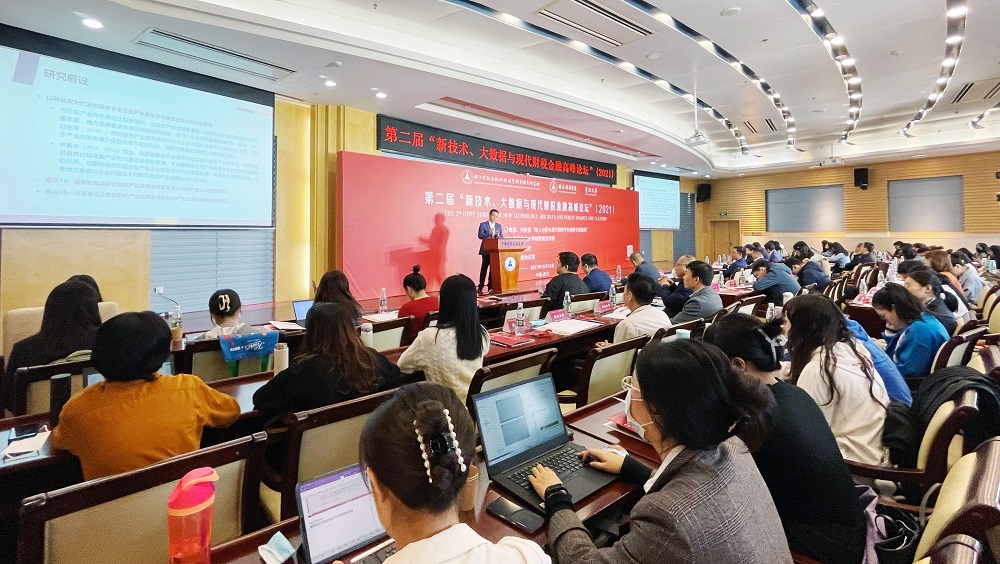
  On 16 October 2021, the 2nd New Technology, Big Data and Public Finance Summit (2021) was successfully held at Zhongnan University of Economics and Law. The forum was jointly organised by IIDPF affiliated with the Ministry of Education and the Ministry of Science and Technology, and the School of Public Finance and Taxation of ZUEL, with the support of Management World. The forum was broadcast live via webcam.
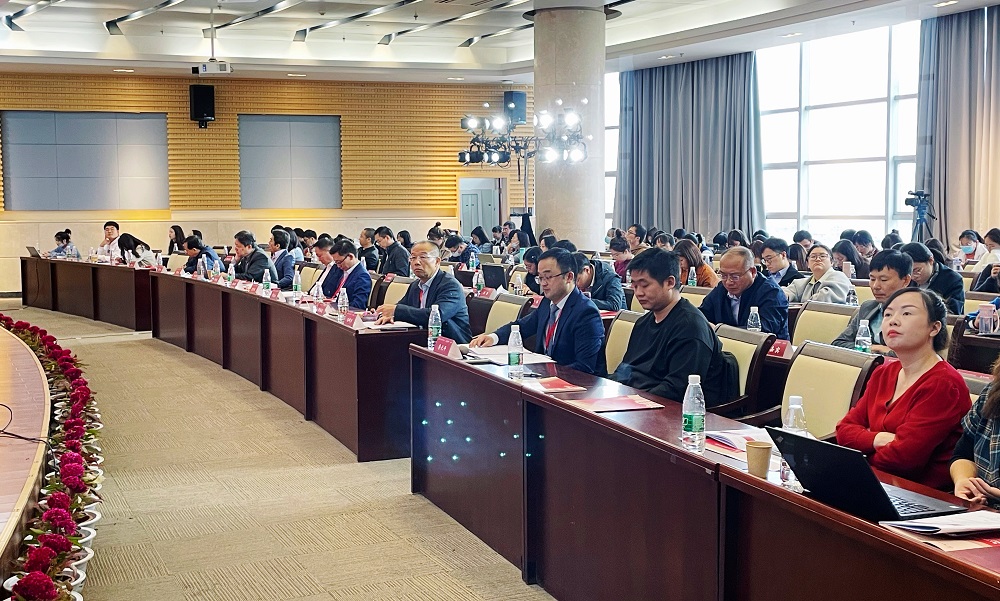
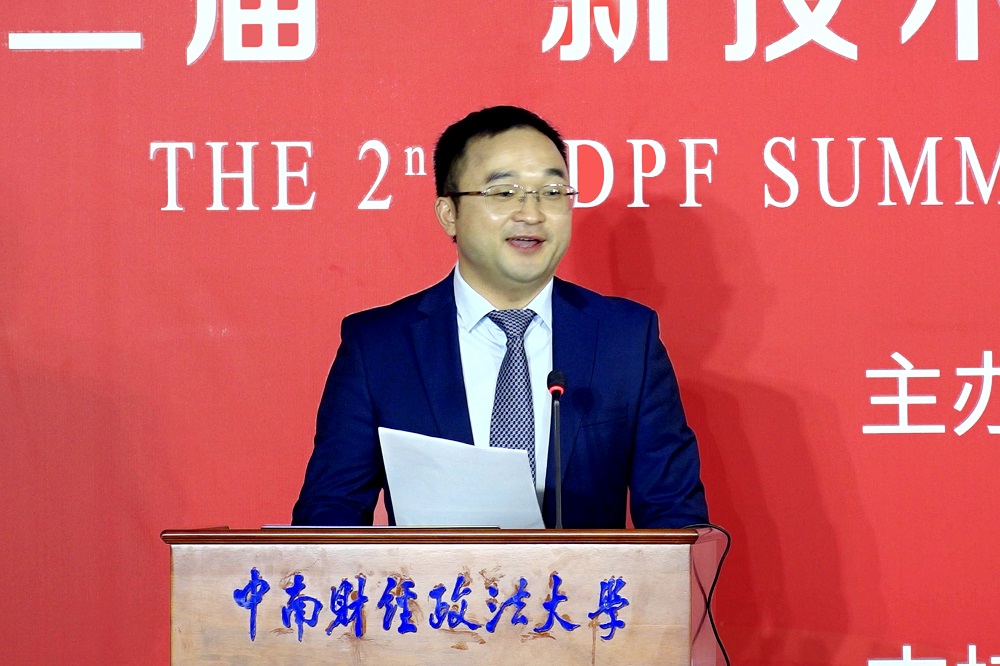
Prof. Lu Yuanping, Executive Deputy Director of IIDPF and Professor at the Institute of Public Finance and Taxation, chaired the forum
  The Forum was attended by Prof. Yang Canming, President of ZUEL and Director of IIDPF; Prof. Zou Jinwen, Deputy President of ZUEL; Fan Ziying, Professor of School of Public Economics and Management of Shanghai University of Finance and Economics and Distinguished Professor of "Changjiang Scholar" of Ministry of Education; Li Junye, Chair Professor of Li Dasan Finance Workshop of School of Management of Fudan University; Li Zhisheng, Assistant President of Zhongnan University of Economics and Law and Professor of School of Finance; Wang Yongqin, Professor of School of Economics of Fudan University; and leaders of relevant functional departments, faculties and lecturers of ZUEL. Professor Gan Li, Director of the China Household Finance Survey and Research Centre of Southwest University of Finance and Economics; Professor Lu Ming, Professor of Antai College of Economics and Management of Shanghai Jiao Tong University and Distinguished Professor of Changjiang Scholar of the Ministry of Education attended the conference through video conference. Researcher Li Zhijun, President of Management World, congratulated the summit through a written message.
  In his speech, Professor Yang Canming, President of ZUEL and Director of IIDPF, firstly expressed his warm welcome and heartfelt thanks to all the experts and scholars. He pointed out that this year is the centenary of the Communist Party of China and the opening year of the Party's leadership of all ethnic groups in starting the 14th Five-Year Plan and moving towards the second 100-year goal. The Fifth Plenary Session of the 19th CPC Central Committee and the 10th Meeting of the Central Finance and Economics Commission made systematic arrangements for achieving the goal of common prosperity, placing the optimisation of income distribution patterns on an equal footing with the achievement of common prosperity, high-quality economic development and the resolution of systemic financial risks, indicating that there is an intrinsic link between the public finance and taxation system, common prosperity and high-quality economic development. At present, revolutionary new technologies are emerging in fields such as artificial intelligence and blockchain, and it is of practical and theoretical urgency to explore the intrinsic links between big data and new technologies and the fiscal and financial system and common prosperity.
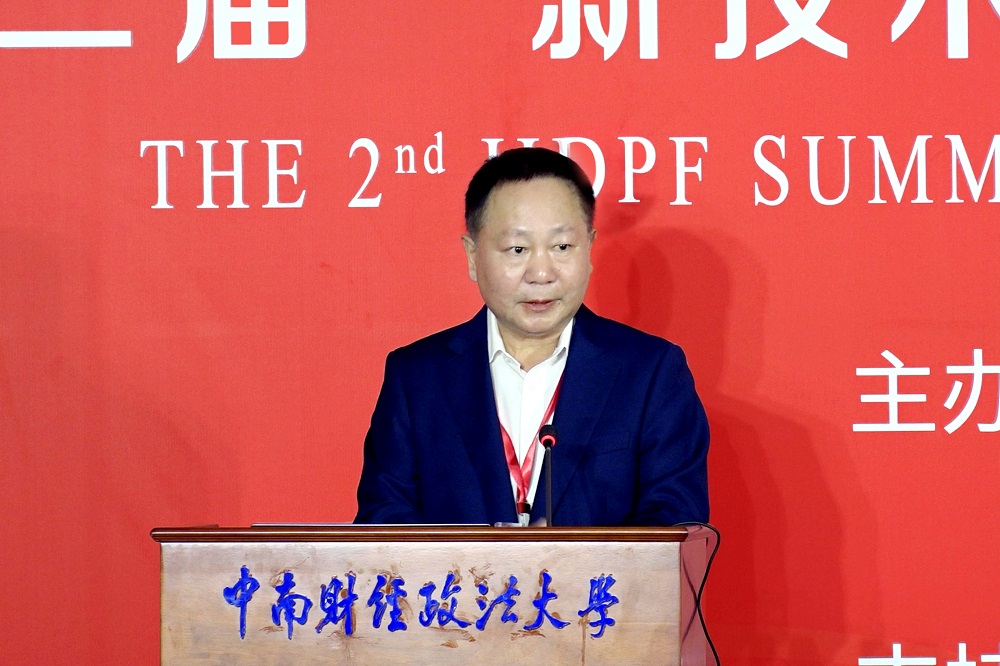
Prof. Yang Canming, President of ZUEL and Director of IIDPF
  In his written speech (delivered by Prof. Zou Jinwen, Vice President of ZUEL, on his behalf), Researcher Li Zhijun, President of Management World, began by wishing the summit a successful convening. Researcher Li Zhijun considers that in the process of China's new journey towards the second 100 years and achieving the goal of common prosperity, the issue of fair distribution has become more complex and challenging. How to successfully avoid the "Sowell trap", in which the improvement of income distribution structure comes at the cost of the decline of economic aggregates, how to accelerate the achievement of common prosperity in the new journey of building a modern socialist country, and how to understand the profound connotation of common prosperity are crucial to the realization of a better life for our people. He noted the hope that the participating experts and scholars could conduct in-depth discussions on the hotspot and difficult issues of common prosperity from multiple angles and in all aspects, and launch a collision and exchange of ideas in response to different views.
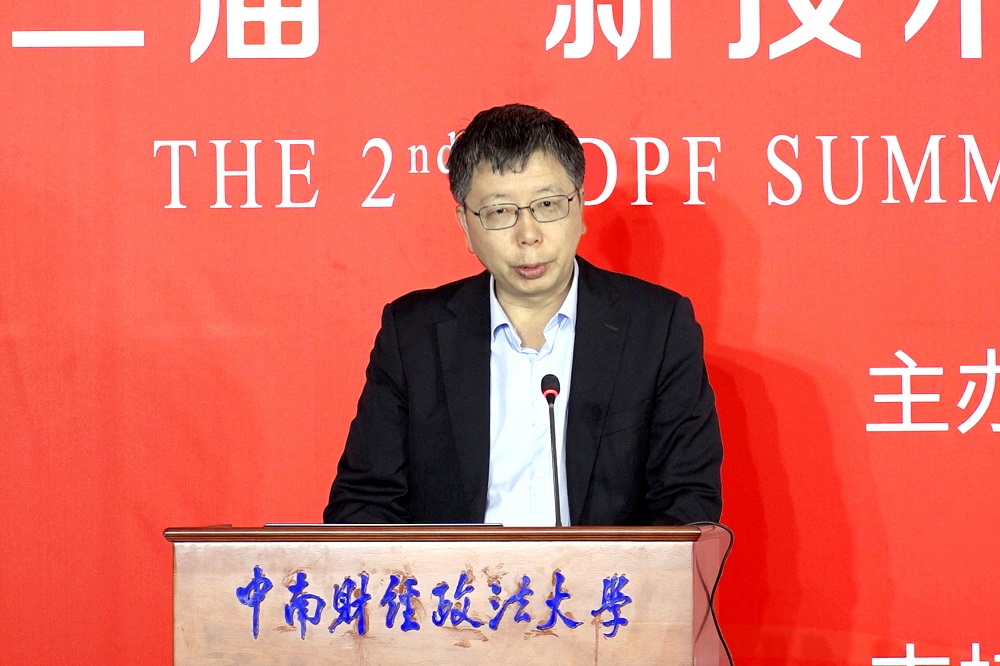
Researcher Li Zhijun, President of Management World (delivered by Prof. Zou Jinwen, Vice President of ZUEL, on his behalf)
  Professor Fan Ziying from the School of Public Economics and Management, Shanghai University of Finance and Economics shared his keynote speech on "Land price control and corporate R&D innovation: Evidence from Bunching Identification". Based on the evidence of cluster identification, Professor Fan Zi studied the impact path of land price control policy on firms' R&D innovation. He explained in detail the four aspects of research motivation, data treatment, research design and policy recommendations, pointing out that the control policy led to a significant cluster effect on the number of land transactions, which significantly changed the behaviour of firms, and the size of the effect was closely related to firms' financing constraints.
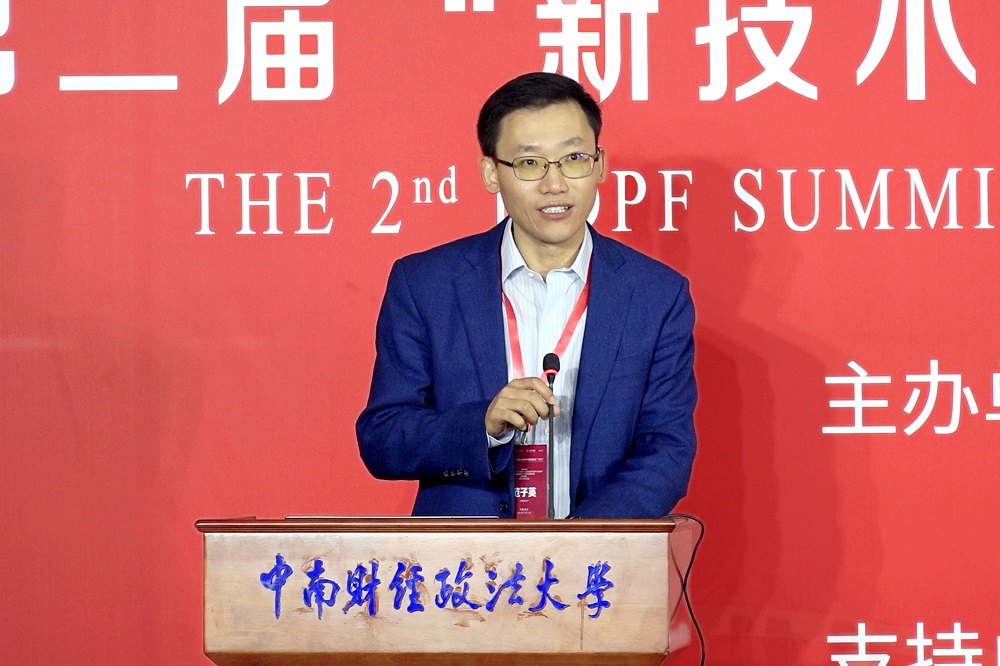
Professor Fan Ziying, School of Public Economics and Management, Shanghai University of Finance and Economics
  Professor Gan Li, Director of the Survey and Research Centre for China Household Finance, Southwest University of Finance and Economics, spoke on the theme of "Pathways to Common Wealth", starting from the pathways to common wealth in various countries and pointing out that government-led secondary distribution is commonly used to narrow the income and wealth gap through transfer payments. Professor Gan Li points out that public transfers are important pathways to achieve common wealth in China, and that they have a significant impact on narrowing the income gap, especially by increasing transfers to low-income groups, which will effectively boost consumption and promote the "dual circulation". Professor Gan also highlighted the significant effect of pension insurance transfers in regulating income disparity in urban areas, but weaker in regulating income disparity in rural areas.

Professor Gan Li, Director of the Survey and Research Centre for China Household Finance, Southwest University of Finance and Economics
  Professor Lu Ming, Antai School of Economics and Management, Shanghai Jiao Tong University, delivered a keynote speech entitled "Common Wealth: A Perspective on the Political Economy of Space". Based on the general equilibrium perspective of spatial political economy, Professor Lu explores the importance of primary distribution in relation to labour mobility in achieving common prosperity through the "triangular paradox" at the national, regional and urban levels. Professor Lu pointed out that with the increasing urbanisation process and the concentration of economy and population in central cities and urban agglomerations, there is a need to make structural adjustments to traditional concepts and institutions, to promote the rational flow and efficient concentration of production factors, to "move towards balance in concentration" and to further accelerate the achievement of common prosperity.
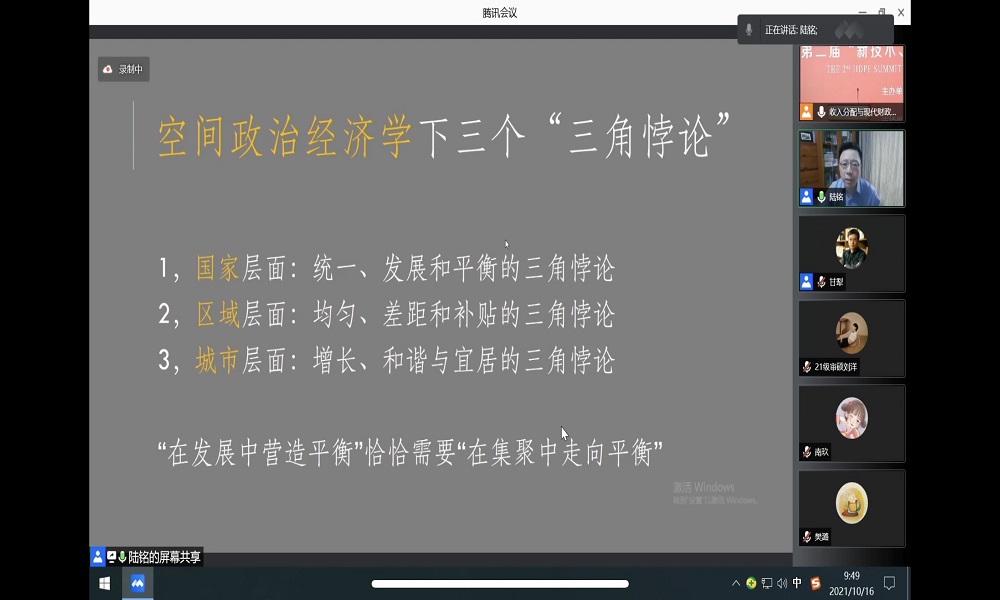
Professor Lu Ming, Antai School of Economics and Management, Shanghai Jiao Tong University
  Based on a deep learning approach, Professor Li Junye from the School of Management, Fudan University, has systematically studied the relationship between macroeconomic information and the predictability of bond returns. Professor Li Junye considers the two main predictors included in the forecasting of bond returns, namely the yield curve and macroeconomic variables. Using a flexible non-linear approach, he constructs machine learning and deep learning models to investigate the predictability of bond returns for any out-of-sample evidence in relation to real-time macro data. Professor Li Junye also introduces data sources of macroeconomic information and out-of-sample design methods, pointing out that bond return forecast results should be analysed not only in terms of their predictive effects in a statistical sense, but also with a focus on their economic effects.
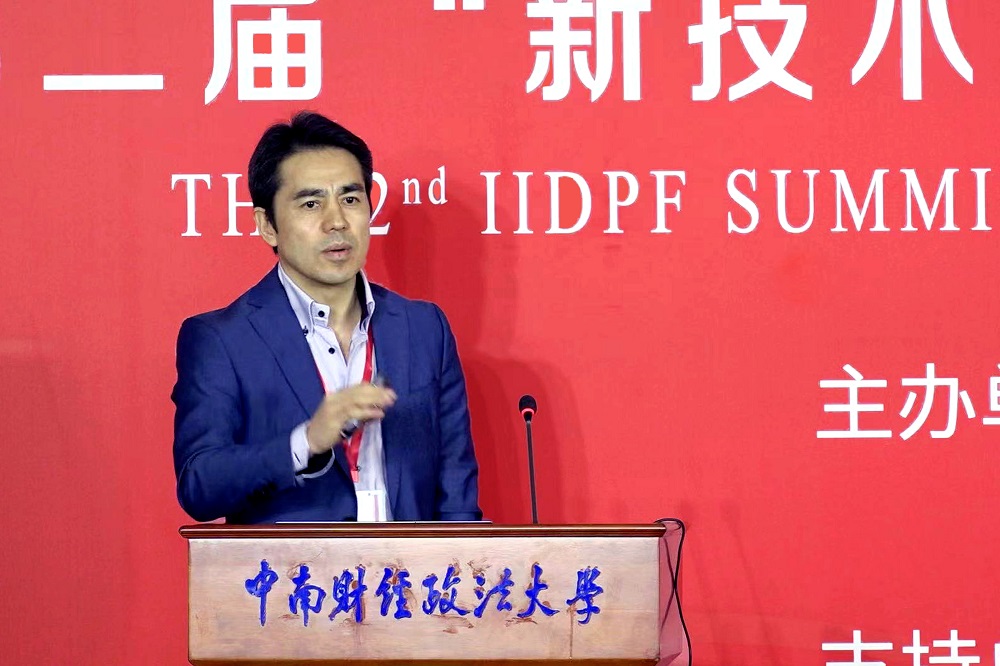
Professor Li Junye from the School of Management, Fudan University
  Professor Li Zhisheng, Assistant President of ZUEL and School of Finance, spoke on the topic of "Implementation Effectiveness of Key Industrial Policies - New Evidence Based on the Perspective of New Structural Economics". Professor Li analysed the effects of the implementation of key industrial policies based on a new structural economics perspective, and conducted further research on the pros and cons of industrial policy implementation and the causes of inefficient investment. According to Professor Li Zhisheng, the key to the issue is how the government can introduce and ensure that industrial policies are indeed effective. Industrial policies can only significantly enhance the investment efficiency of enterprises in the target industries if they follow the comparative advantages of the regions, thus promoting high-quality economic development.
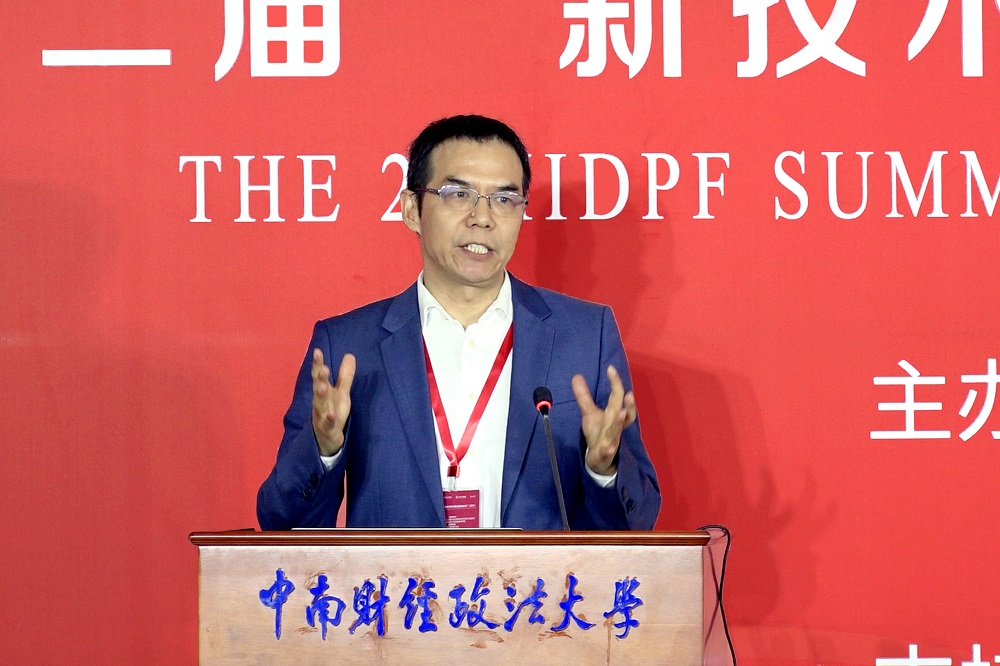
Professor Li Zhisheng, Assistant President of ZUEL
  Professor Wang Yongqin from the School of Economics of Fudan University delivered a keynote speech entitled "How Robots Affect China's Labour Market and Income Distribution". The emergence of robotics and artificial intelligence technologies will contribute to high-quality economic development and the achievement of common prosperity, according to Professor Wang Yongqin. He identified the causal relationship between the impact of robot applications on the labour demand of firms and the income of workers from the perspective of firms and urban households. The empirical analysis reveals that the increased penetration of industrial robots has had a substitution effect on the labour demand of manufacturing enterprises, and that there is a "polarisation of employment". At the same time, there are significant differences in the impact of robots on the wage income of workers with different skills (different occupations), with a certain "wage polarisation".
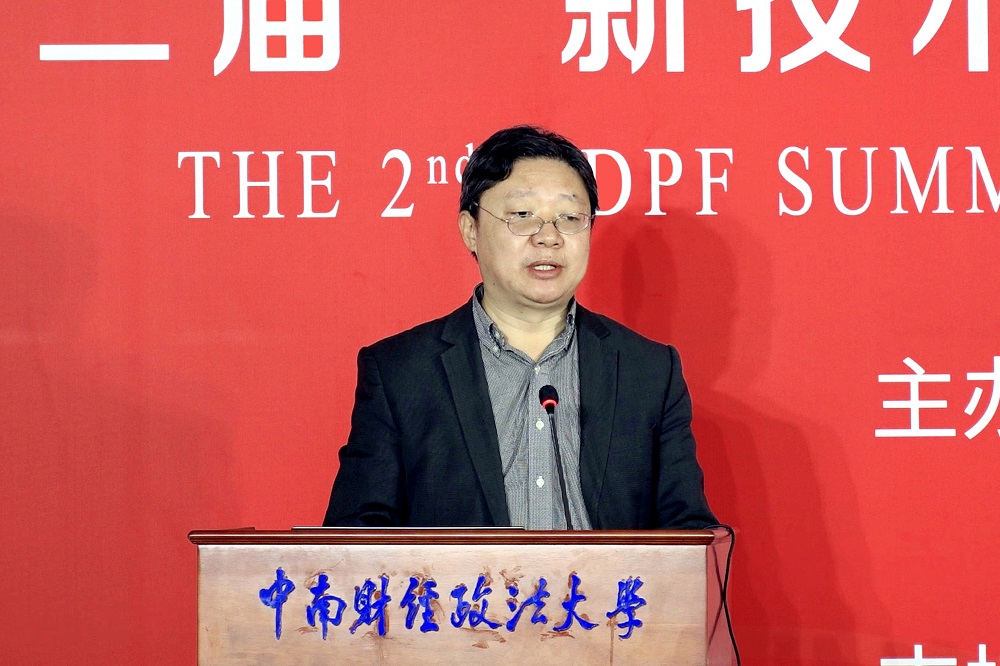
Professor Wang Yongqin from the School of Economics of Fudan University
  The two afternoon sub-forums were closely focused on the topics of artificial intelligence development and income distribution pattern, spatial reallocation of public resources, finance and enterprise development, public policy and fairness of opportunities, labour cost and taxation, and smart manufacturing and innovation. The atmosphere in the sessions was lively, with scholars exchanging in-depth views on relevant topics and actively expressing their insights.
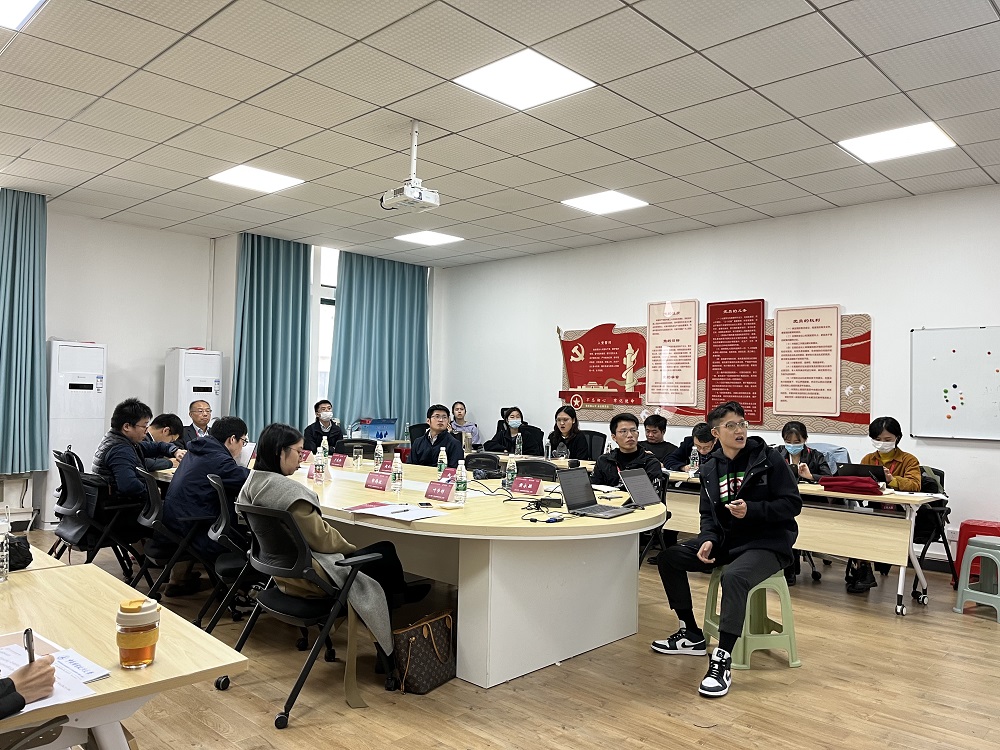
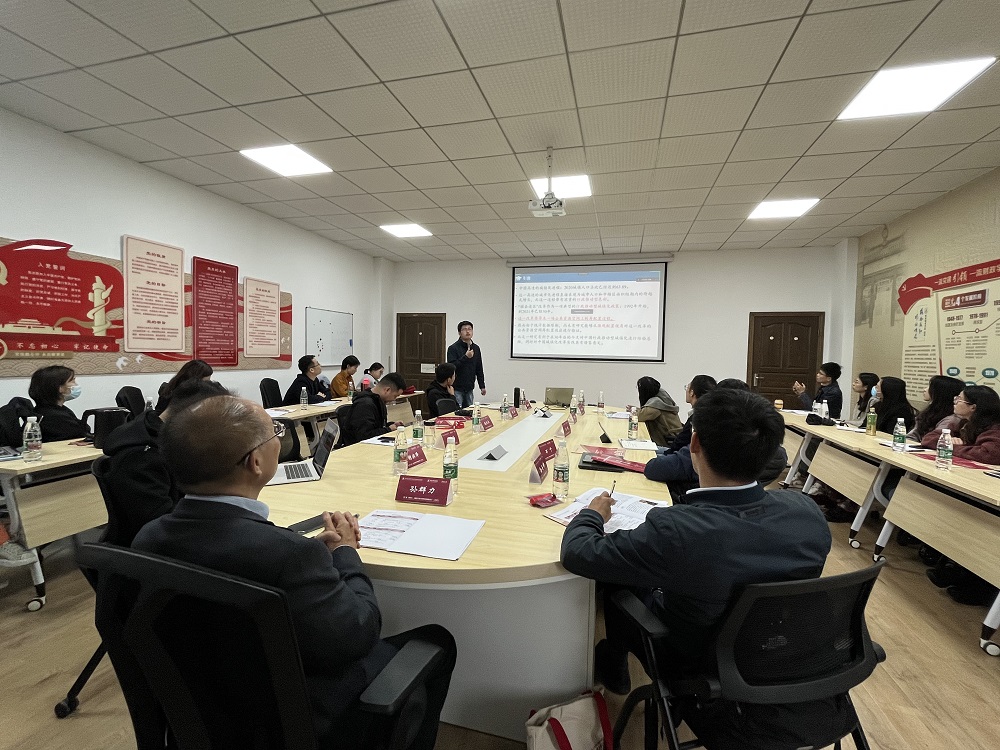
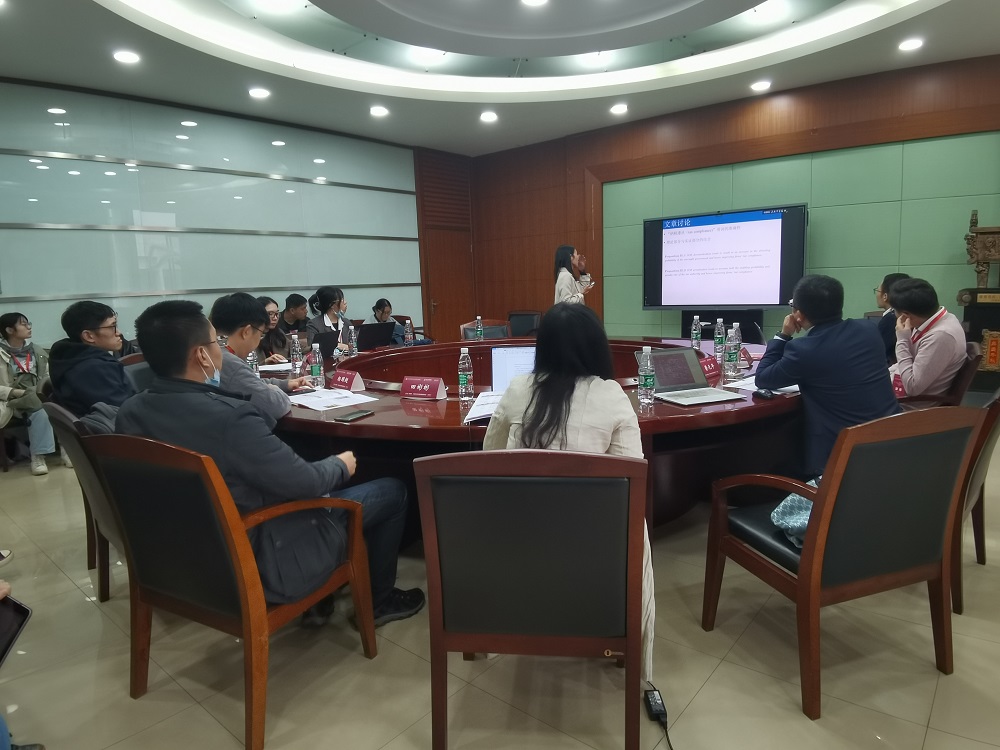
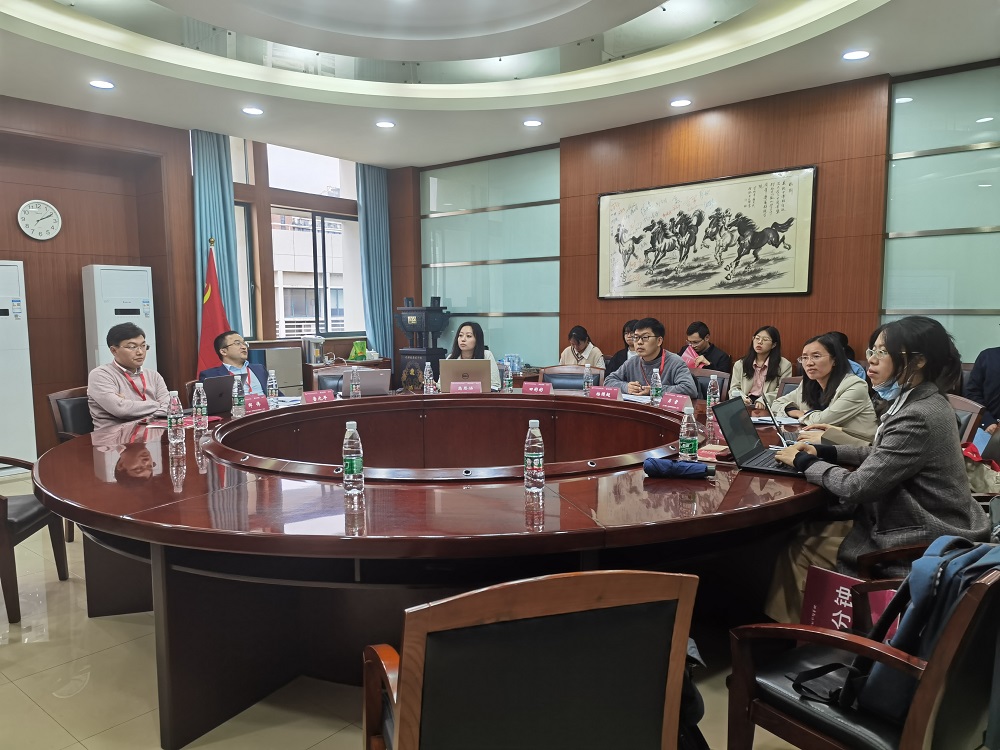
Discussion in sub-forums
  Along with the digital technology and technological revolution in full swing, new technologies and big data are constantly impacting the traditional fiscal and financial system, and have an important impact on the income distribution pattern and the goal of common prosperity in China, which requires us to optimise the traditional fiscal and financial system, and thus improve the suitability of big data to new technologies, the public fiscal and financial system and the goal of common prosperity. The summit brought together experts and scholars to open up new horizons, provide new approaches and contribute new perspectives to advance research related to big data and new technologies, public finance and taxation systems, and provide important intellectual support to achieve the goal of common prosperity.
